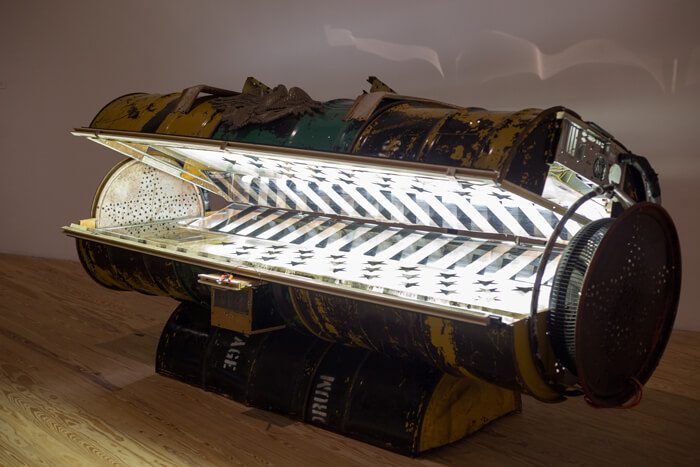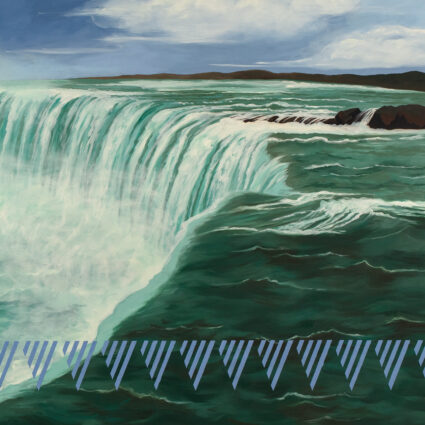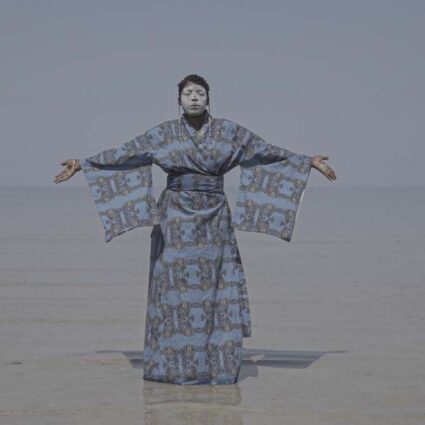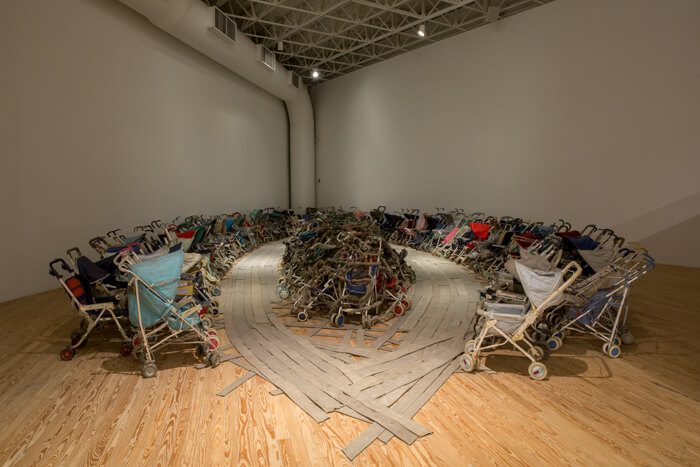
Nari Ward: We the People
August 16–November 30, 2019
Contemporary Arts Museum Houston, Houston
Nari Ward first made international waves during the 1993 Venice Biennale via Exodus, a mixed-media display constructed from discarded urban materials, such as a dirtied orange sweater, stuffed animals, a corn popper toy, and a Mickey Mouse patch. Since then, the St. Andrew, Jamaica–born, Harlem-based artist has continued to present this country’s brutal legacy of slavery, the African diaspora, and American racism through staggering amounts of repurposed belongings.
Nari Ward: We the People at the Contemporary Arts Museum Houston not only begs important socio-economic questions, but the show also bullseyes the mark in contemporary art. This is especially the case in Glory, a heavy machinery-type floor display that evokes disparate imagery of tanning beds, Egyptian sarcophagi, and 1950s-era jukeboxes. Meanwhile, Exodus, the Venice Biennale salvo that entered Ward into the emerging-artist roll call, includes various-sized containers of memories and a hanging mandala erected from old fire hose, which, of course, is a painful emblem for African Americans of police brutality.
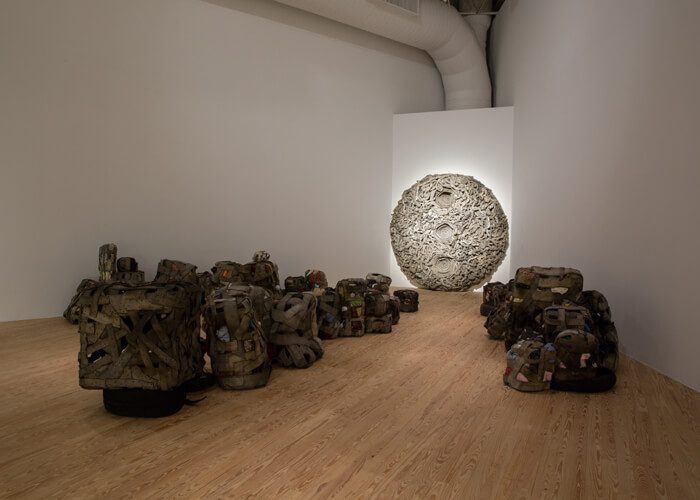
The hit single of the exhibition, Amazing Grace, features hundreds of strollers once used by Harlem’s homeless population to haul their possessions. The dimly lit display looks like you’re peering into a storage space that has hemorrhaged faded baby blue, muted pink, and depressing navy-blue strollers, which rest next to a wishbone-like formation of fire hose.
A looped recording of a traditional spiritual sung by Mahalia Jackson accompanies the installation. The organ accompaniment in the gospel song is often so low or completely absent in the audio mix that the playback sounds like an embryonic 78-rpm record—but without the rhythmic whooshing over the grainy, shallow grooves of a lathe-cut plate. Jackson’s lamenting voice, along with the thin and dejected candescence that softly illuminates the installation, could be an appropriate visual and audio garnish to James Baldwin’s Another Country, another Harlem case study that tackles the struggles of people of color. The text, like Ward’s Amazing Grace, is nearly impossible to shake once it’s entered your mind.
